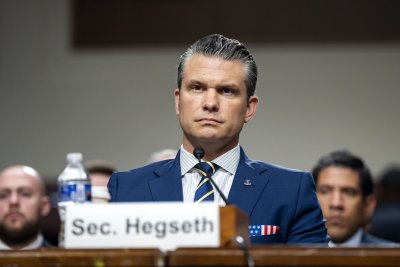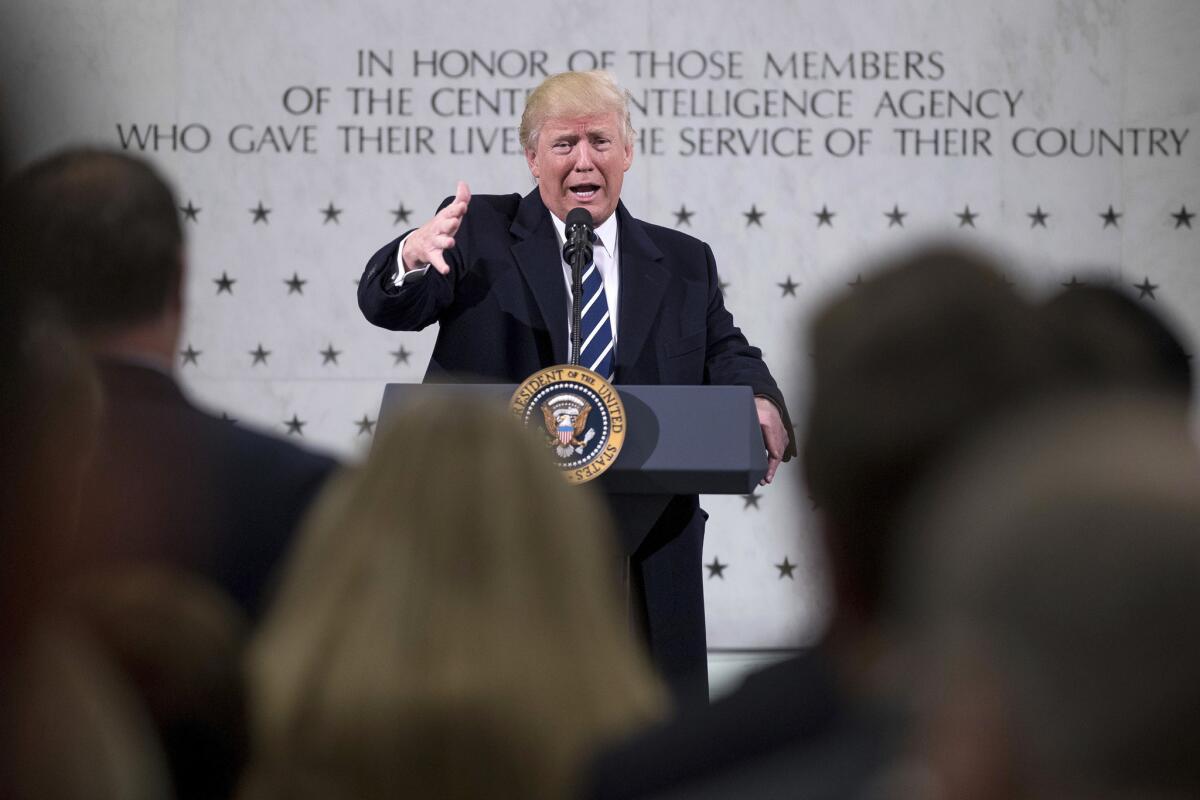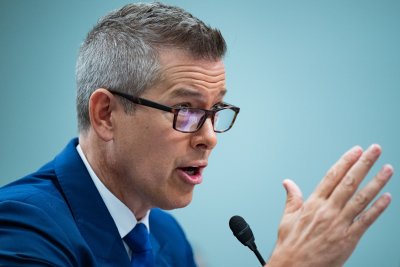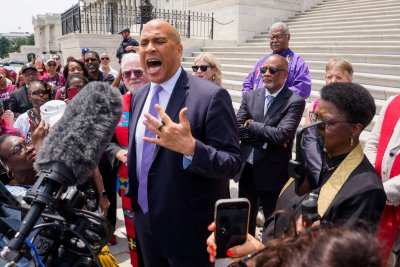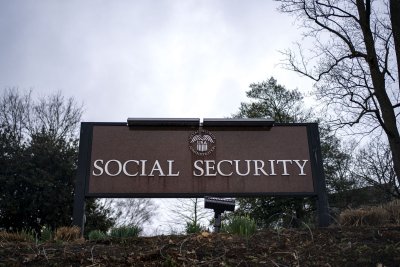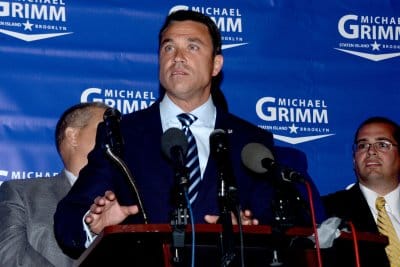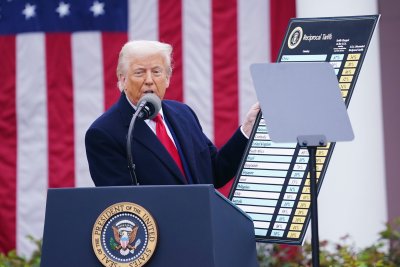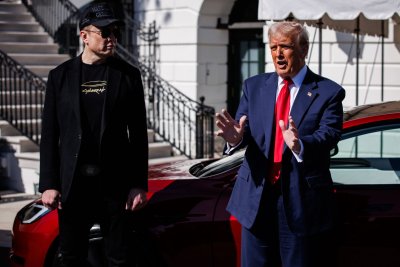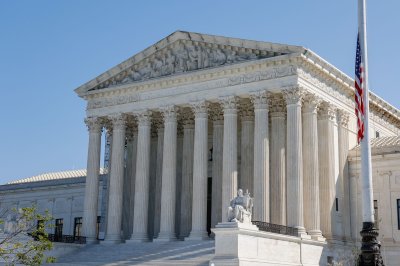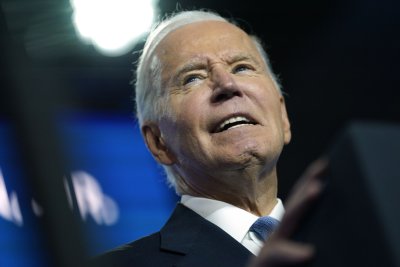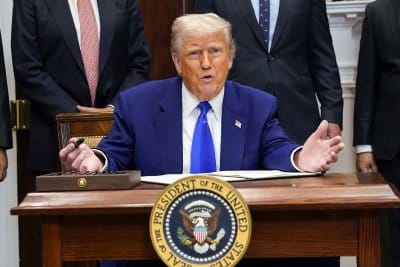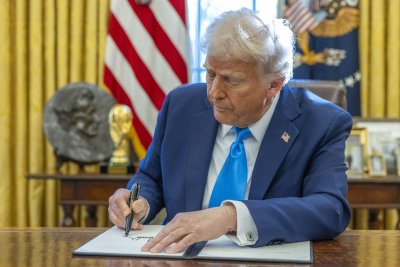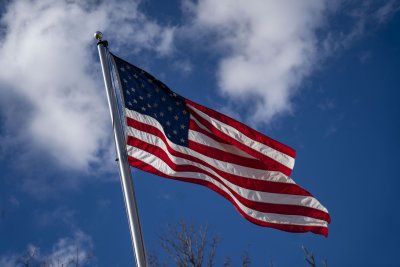June 10 (UPI) — Elon Musk‘s work in the government has ended after five months and former White House staff have serious doubts about the Department of Government Efficiency self-reported results.
To date, DOGE claims that it has saved the government about $180 billion by slashing the federal workforce, ending contracts, selling assets and cutting grant programs. However, its so-called “Wall of Receipts” is filled with questionable or inaccurate entries, according to Elaine Karmarck, senior fellow at the Brookings Institution.
Karmarck led President Bill Clinton‘s Reinventing Government Initiative, a program that cut 426,000 civil servants from the federal payroll and cut federal and agency regulations.
There are three metrics Karmarck told UPI she uses to measure how effective DOGE is. Some of those metrics will not be available until the next administration takes office on Jan. 20, 2029.
The first metric is whether there are fewer people working in the federal government at the end of President Donald Trump‘s term. There are about 2.2 million federal employees, a number that — despite narratives claiming the government continues to grow — has been consistent for decades.
In the 1940s, there were as many as 3 million federal employees. In the 1950s, there were about 2.5 million. In the 1980s, the number of federal employees increased back to about 3 million. It has remained between 2 and 3 million since.
Federal judges have ruled that some federal employees DOGE advised to be fired must be rehired. Musk also said that it has made mistakes in some layoffs, including laying off employees with the National Nuclear Safety Administration who are responsible for the safekeeping of the U.S. nuclear stockpile.
The second metric is whether there are fewer government contracts and fewer dollars spent on those contracts.
DOGE lists more than 11,000 contract terminations totaling $34 billion in savings. It says more than 15,000 grants have been terminated resulting in about $44 billion in savings.
Third is the government’s performance as measured by economic markers such as the Bureau of Labor Statistics’ unemployment reports as well as people’s own experiences receiving government services.
“That’s a biggie. In other words, you can cut the government but if you have airplanes crashing and you have massive mix ups in Social Security checks, nobody is going to be applauding you for this,” Karmarck said.
DOGE’s goal has been to cut about $2 trillion in federal spending.
UPI reached out to the White House Press Office and Tesla’s press office for interviews or comments. Neither responded to the requests.
About a quarter of the government’s budget is discretionary spending, meaning spending that is subject to appropriations by Congress. It amounts to less than $2 trillion. In fiscal year 2024, discretionary outlays totaled about $1.8 trillion.
The rest of the budget is mandatory spending, also known as direct spending. This funding goes toward programs like Social Security, Medicare, veterans’ benefits and other programs.
Jenny Mattingly, vice president of government affairs for Partnership for Public Service, told UPI it would be difficult to reach DOGE’s goal without cutting into mandatory spending.
“Most of the U.S. budget is this mandatory, non-discretionary spending,” Mattingly told UPI. “Just a small portion, comparatively, goes to the federal workforce.”
While the number of federal employees has remained relatively consistent, Mattingly notes that there are fewer federal employees per capita as the population has grown.
“When you look at the U.S. population, that’s exploded,” she said. “So we actually have fewer federal employees per capita than in the past and they’re doing an enormously greater magnitude and scope of work than the federal government did, say 30, 40, 100 years ago. What Congress and administrations have authorized the government to do is far greater and far more complex than it was.”
Measuring DOGE’s progress five months in remains a challenge. The most recent date that DOGE updated its payment statistics or “receipts” was May 13. At that time, less than half of those receipts were itemized.
The most cost savings, indicated by DOGE’s “Agency Efficiency Leaderboard,” have come from the Department of Health and Human Services, followed by the General Services Administration, the Department of Education and the Office of Personnel Management.
“The list they put on the DOGE website turns out to be about 40% inaccurate,” Karmarck told UPI. “We can’t take their word for it. They were very sloppy. They made no effort at transparency other than a website which just has a list of things.”
An example of the inaccuracies shared by Karmarck is that DOGE has taken credit for ending contracts that ended before Trump was inaugurated.
Faith Williams, director of the Effective and Accountable Government Program for Project on Government Oversight, agrees that DOGE’s website cannot be trusted based on its inaccuracies and a lack of transparency.
Inaccuracies have been brought to DOGE’s attention on social media and it has made some corrections, though questions remain about its transparency.
“Transparency has been an issue since day one,” Williams told UPI. “This is an example of where DOGE has the power of a cabinet-level agency when it wants to but doesn’t have to recordkeep when it doesn’t want to. DOGE gets to be whatever is convenient in the moment.”
Musk’s initial role — as stated by him and Trump — was to lead DOGE in an effort to tackle waste, fraud and abuse in the federal government for the purpose of making it run more efficiently. The White House later downplayed his direct role with DOGE, referring to him as an adviser to the president.
The murkiness of Musk’s true role in DOGE underlines why Williams has concerns about its structure, mission and lack of transparency. She has been investigating the office since it began, looking into its structure, who works for DOGE and its potential conflicts of interest.
“One thing we learned fairly early on DOGE, its structure was very questionable. It was very opaque and it was opaque by design,” Williams said. “That opacity really helped shield it and its actors and its actions from any kind of accountability, whether that’s from members of the public or even congressional accountability or even in the courts.”
“Who led DOGE and worked at DOGE was one thing one day and a different thing on a different day depending on what was advantageous,” she continued.
Project on Government Oversight filed a lawsuit against DOGE over its lack of recordkeeping made available to the public and accessing sensitive records. DOGE faces lawsuits from other organizations related to its alleged lack of compliance with the Freedom of Information Act.
In March, U.S. District Court Judge Casey Cooper ruled that DOGE’s records are likely subject to the Freedom of Information Act. This was in response to a lawsuit by the government watchdog group Citizens for Responsibility and Ethics in Washington.
There are several more lawsuits against DOGE related to its handling of data, compliance with FOIA and methods of cutting federal workers.
In contrast, Karmarck’s Reinventing Government Initiative did not face any litigation.
“The reason we had no lawsuits is we followed the law,” she said. “We passed a buyout bill so we had the congressional authority for buying people out. We simply followed the law.”
Instead of recommending Congress take actions like laying off federal employees or rescinding funds it has approved, DOGE has taken unilateral actions resulting in lawsuits. Funding approved by Congress requires congressional action to end.
DOGE is not a congressionally approved agency, as a president cannot unilaterally create a new agency. He can create a new office, as past presidents have done. The authority of that office to take actions is limited, making it closer to an adviser than a federal agency.
Accessing federal data systems and making changes is among the actions DOGE has taken that have raised the greatest concerns.
Beth Noveck was the founding director of the White House’s Open Government Initiative, a program started under President Barack Obama‘s administration that focused on using technology and data to modernize and improve government operations. She is currently the director of the Governance Lab and its MacArthur Research Network on Opening Governance at New York University.
Noveck told UPI oversight on DOGE is past overdue, due to reports of the data it has accessed or attempted to access, including Medicare and Medicaid payment data, Social Security records, student loan data and the Office of Personnel Management systems.
“Who has access and how it is being used is something we need an accounting of,” Noveck said. “It’s concerning and it seems that we’re giving access to the likes of Palantir [Technology] to combine data that will effectuate mass surveillance and control. The risk is not just a failed attempt at cost savings, it’s a successful attempt at authoritarian overthrow.”
The main tenets of DOGE are not new, evidenced by the work Noveck and Karmarck did for past administrations. There are nonpartisan government oversight entities that existed before Trump’s current term as well, including the Office of Government Ethics and the inspectors general. However, shortly after Trump returned to office he fired the head of the Office of Government Ethics and 18 inspectors general.
Last week, Sen. Elizabeth Warren, D-Mass., released a report on Musk’s 130 days working in the government. The report alleges that Musk used his position to direct lucrative government contracts toward himself and his companies SpaceX, Tesla, Boring Company and Starlink.
Amid an online feud with Musk following his departure as a White House Adviser, Trump has threatened to cancel all contracts with his companies.
Warren’s report also alleges that Musk and DOGE undercut agencies responsible for regulating his businesses and stopped enforcement actions against them.


